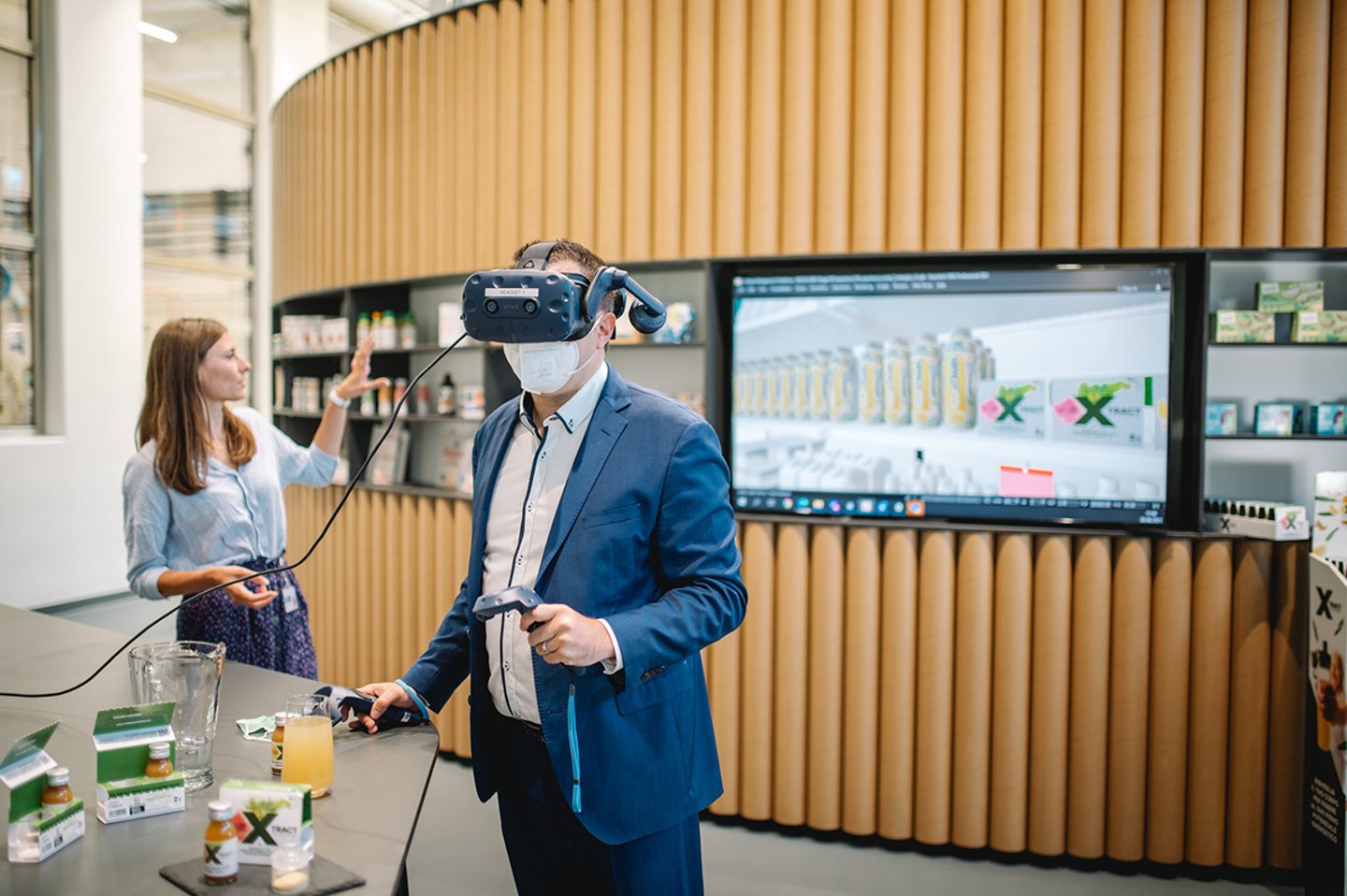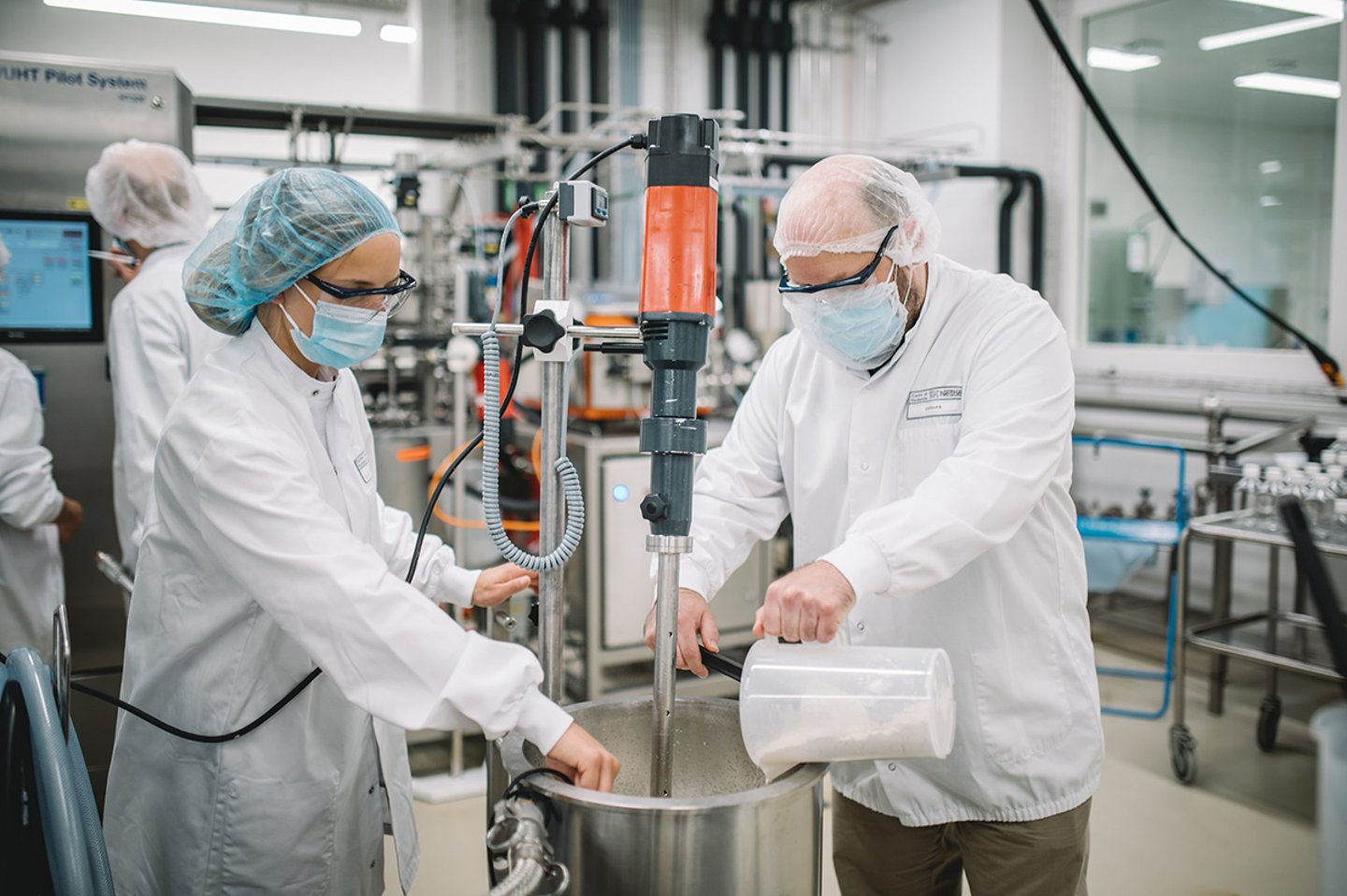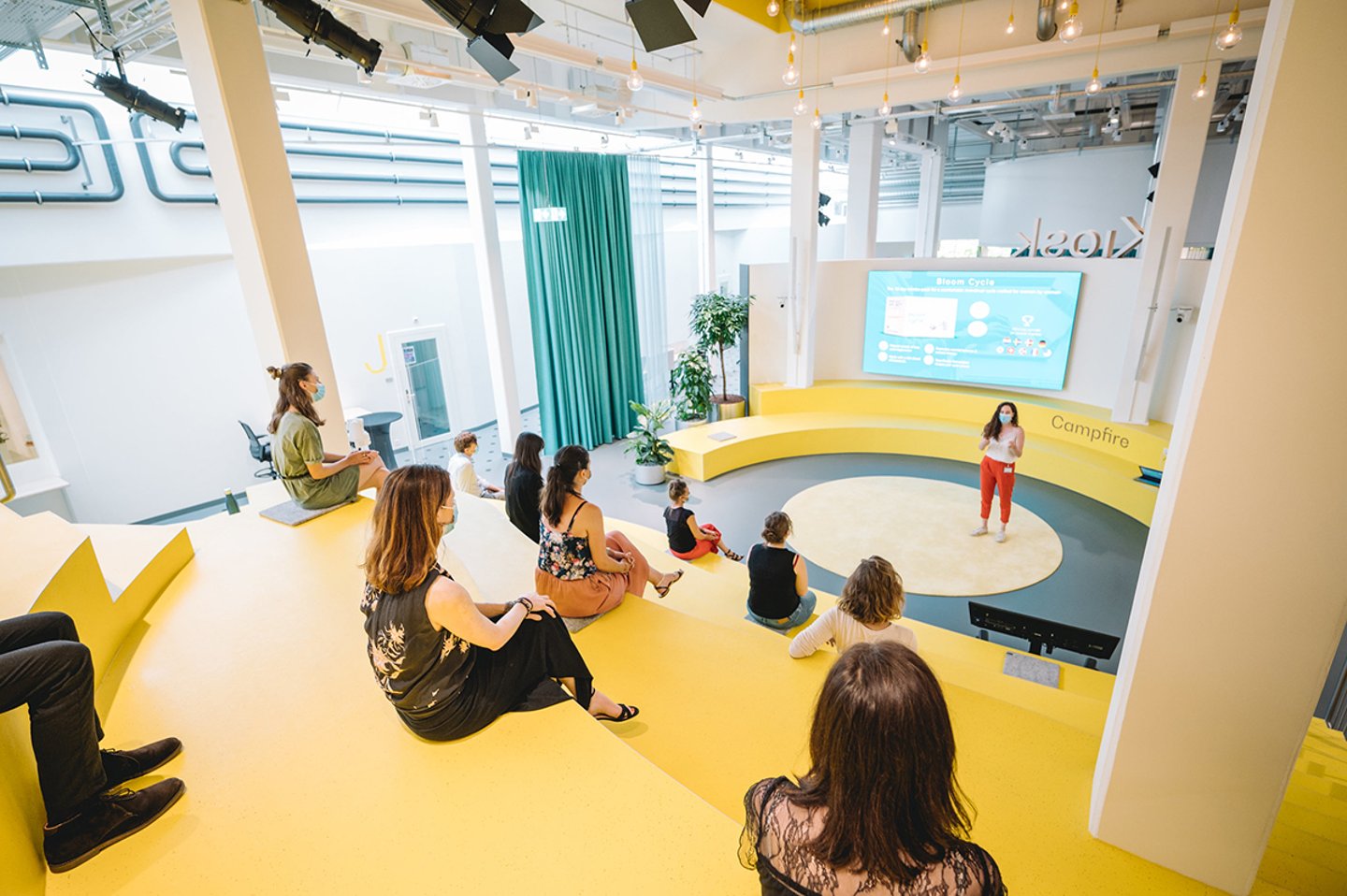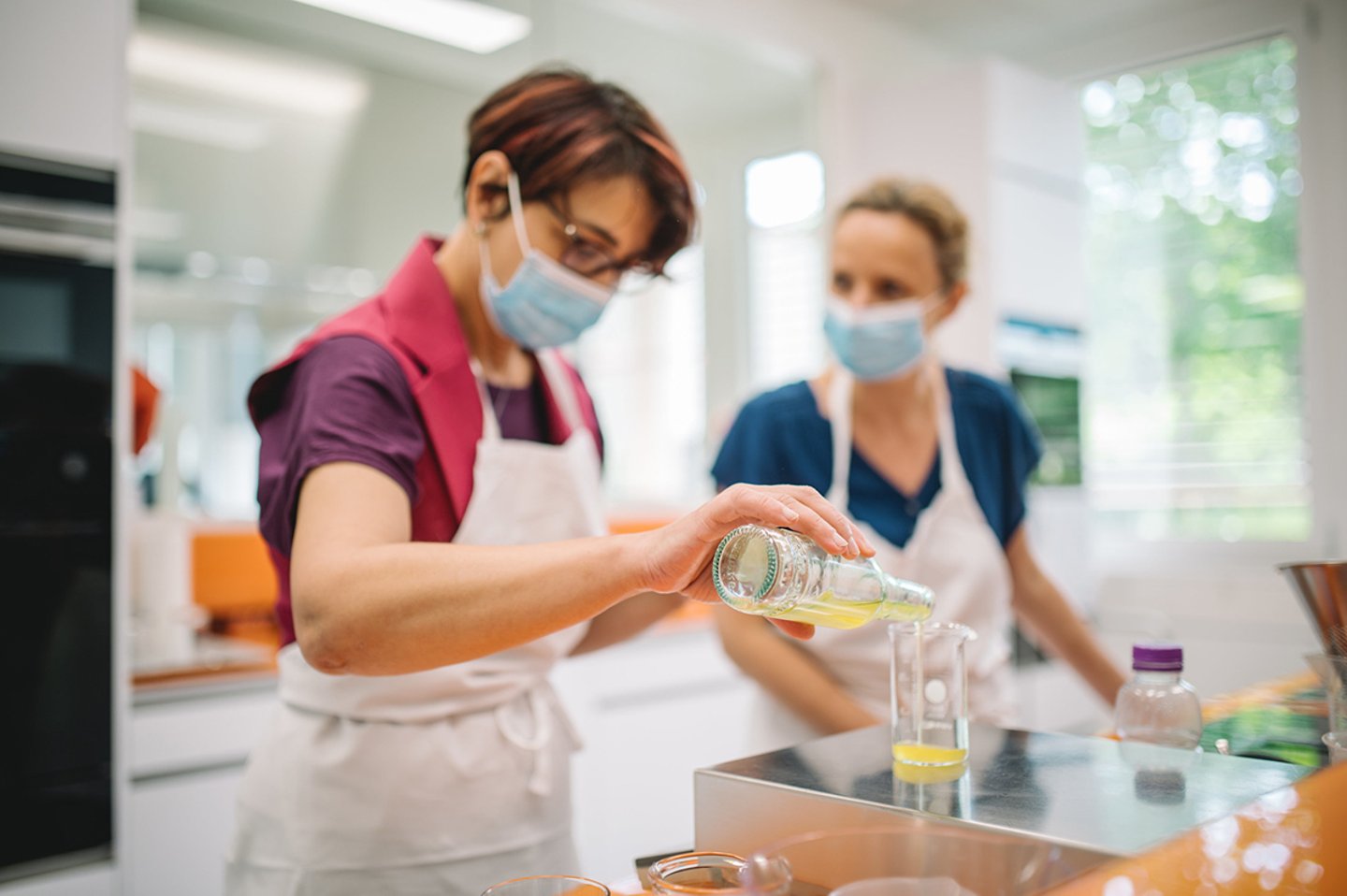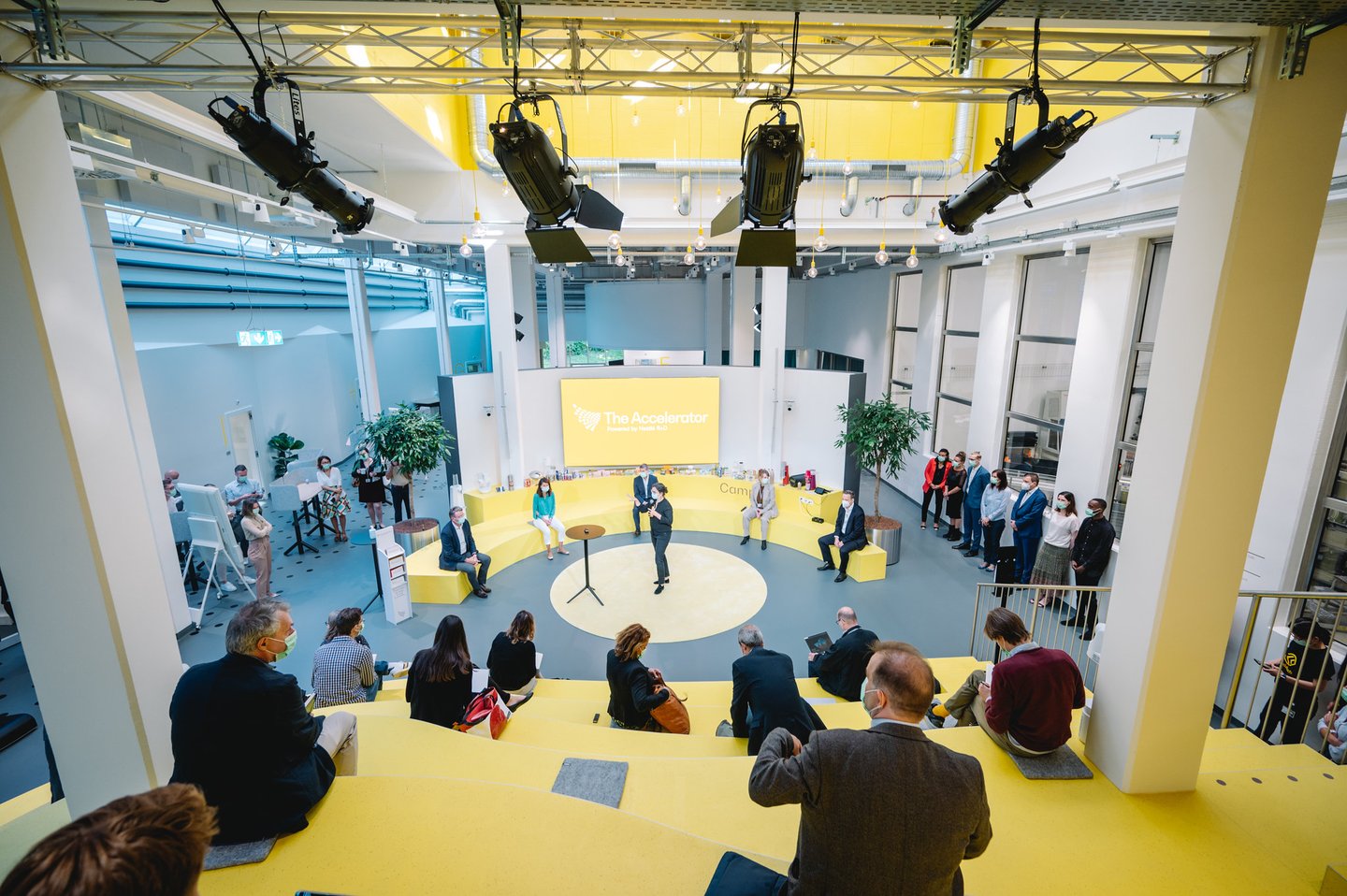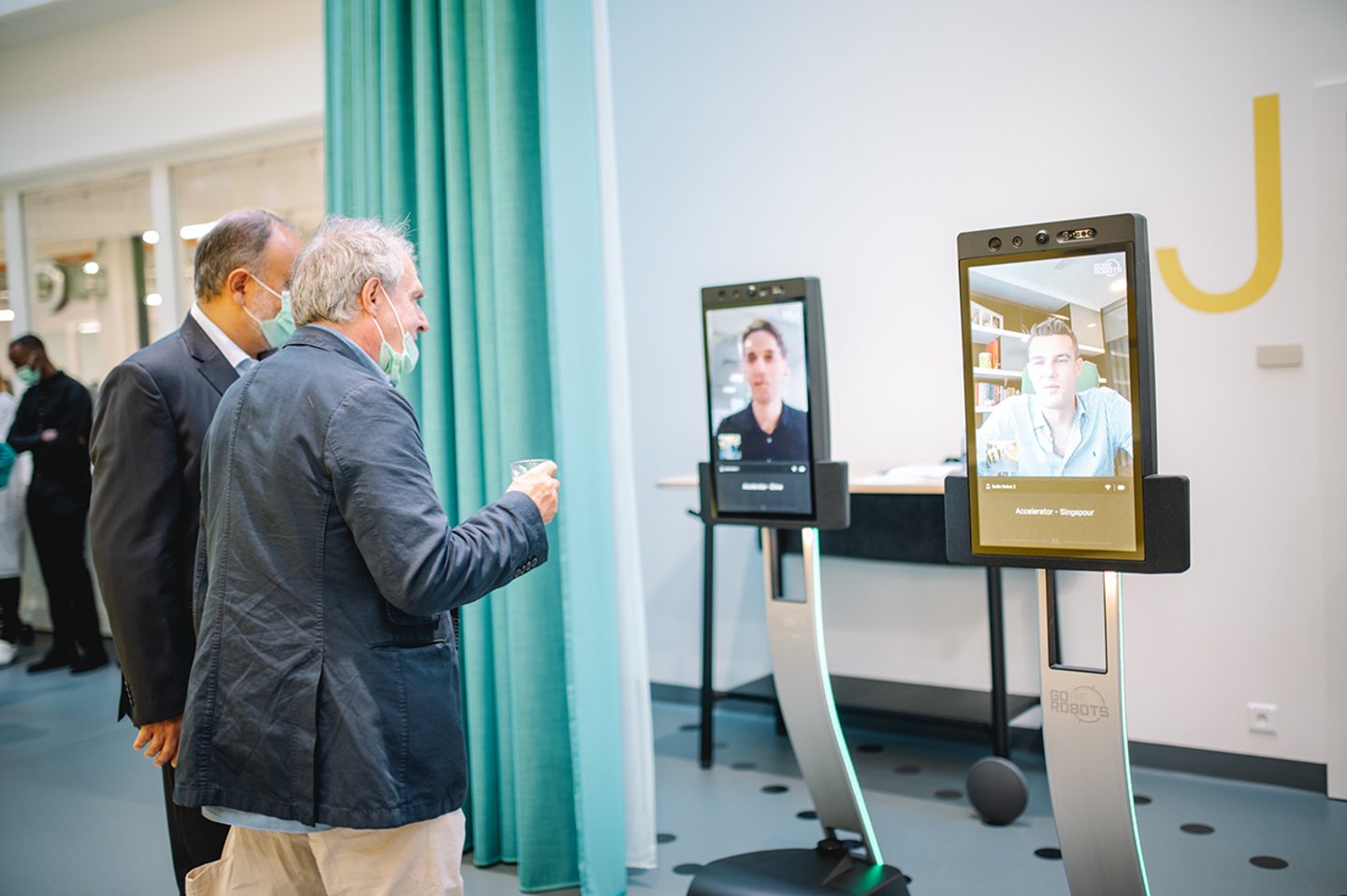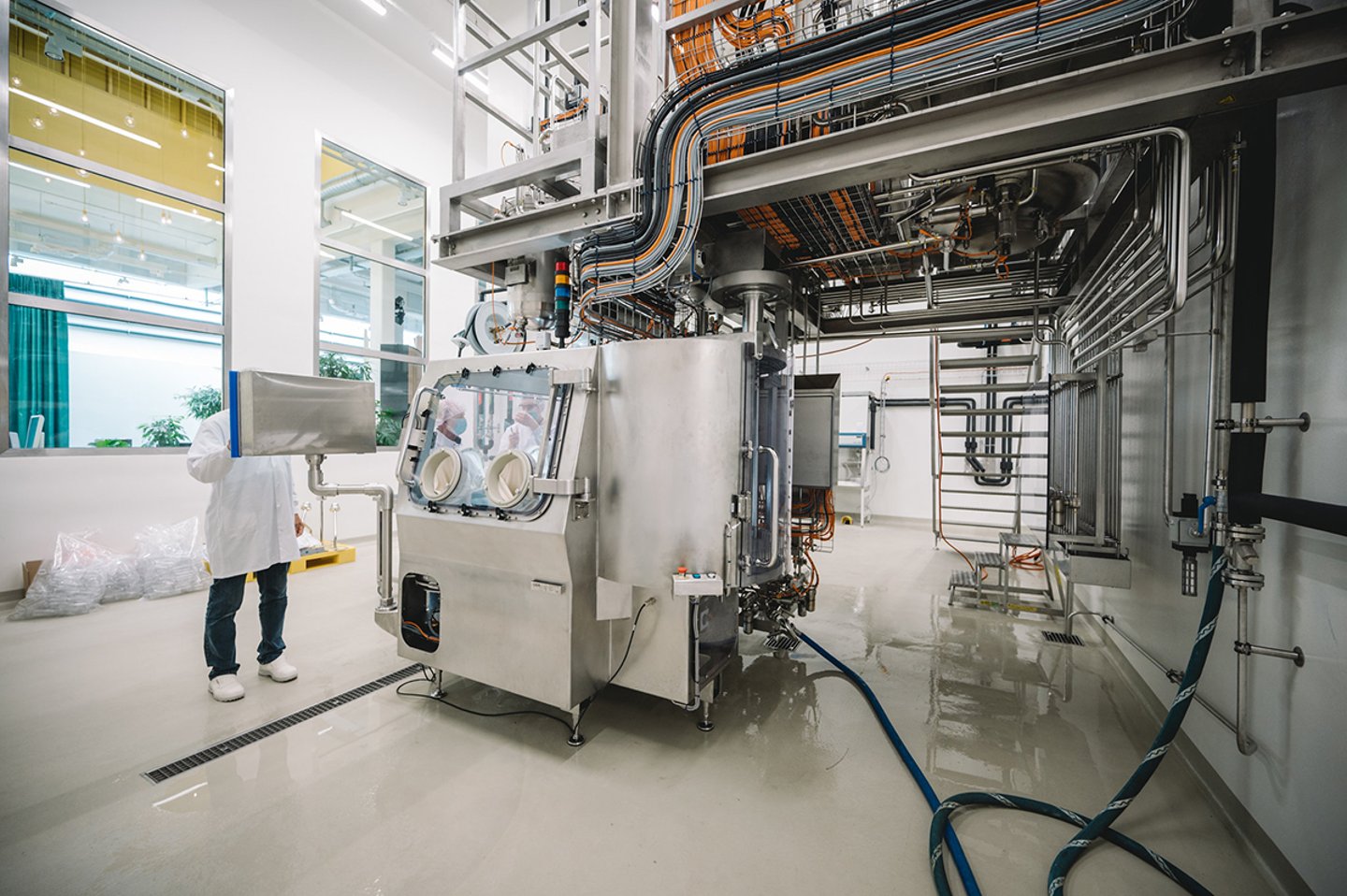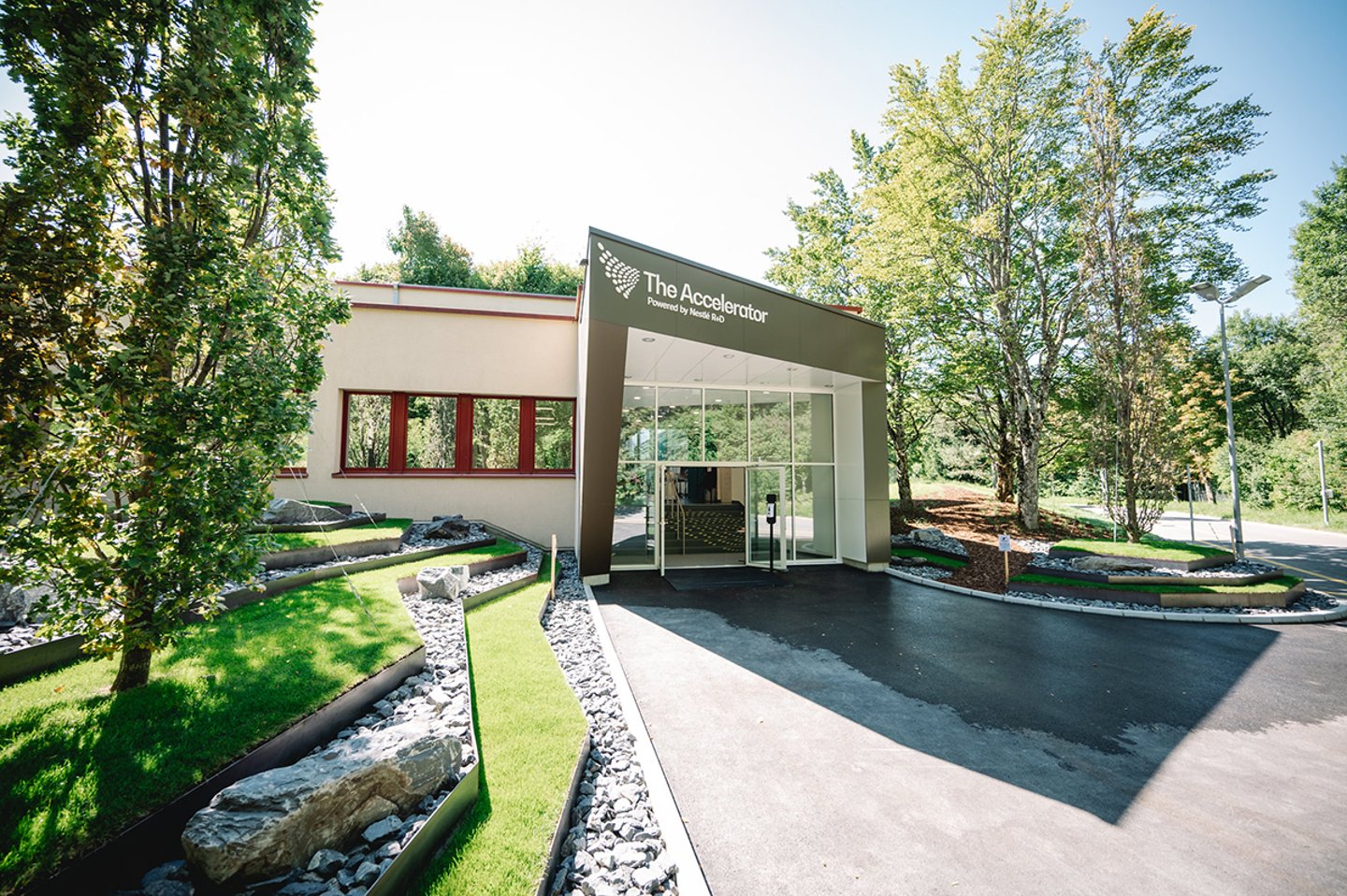Inside Nestlé’s Largest R&D Accelerator
Nestlé opened the doors to its largest R&D Accelerator, marking the company’s 12th such site in its rapidly growing network.
Located at its research center in Lausanne, Switzerland, the 43,000-square-foot facility is part of the global R&D Accelerator network the No. 1 consumer goods company launched in 2019, intended to serve as a platform for startups, students and Nestlé associates to bring new innovations quickly to market. A company spokesperson confirmed to CGT the firm intends to open more sites, noting that open innovation has become an integral part of its R&D setup and the Accelerator program is a big part of it.
Accelerator and incubator programs have become commonplace in many large consumer goods companies, designed to help legacy firms both attract start-up minded talent and execute more quickly on new innovations to meet shifting consumer behavior. Procter & Gamble has startup studio P&G Ventures while PepsiCo’s Greenhouse Accelerator program is dedicated toward developing innovations furthering health, wellness and global responsibility.
Other companies are looking even more outward in their efforts: Georgia-Pacific teamed with startup accelerator Gener8tor earlier this year to launch 1915 Studios, a pre-accelerator for early-stage companies that operates in Georgia-Pacific's Wisconsin R&D center.
In Nestlé’s case, both internal and external teams have full access to the company’s infrastructure and science, technology and business resources, with a six-month “ideal to shop” program enabling them to leverage trend insight, differentiating technologies, and scientific research for ideating and developing product solutions.
[See also: As Freshly Scales Under Nestle’s Wing, Personalization Becomes Paramount]
This includes consulting with global Nestlé’s R&D experts, such as food technologists, nutritionists, regulatory and food safety experts, designers and packaging executives. Participants are also supported by dedicated innovation coaches and mentoring from senior management.
Tom Wagner, head of the Nestlé program, said participants are provided with full access to the expertise and infrastructure required to translate an idea into a product, including analytical labs, experimental kitchens, and prototyping and production facilities. Innovations are also tested in real-market conditions.
Made up of 12 sites in eight countries, Nestlé’s global R&D Accelerator network has had 165 participants thus far, with nearly 80 products tested in 18 countries. The company intends to expand the network to more sites and reach a global capacity of more than 100 to 150 projects per year.
Recent launches include Wunda, a pea-based milk alternative, as well as a plant-based alternative to chicken drumstick developed by food tech startup Sundial Foods.
The Accelerator has also resulted a supplement based on Nestlé proprietary research identifying new natural bioactive ingredients that work at the cellular level to reduce physical fatigue. Nestlé’s scientists have shown that the combination of micronutrients with a natural olive extract supports muscular energy and allows the body to use its full potential, the company spokesperson told CGT, and the successful shop test in Italy is currently being expanded.
[See also: A Peek Inside Hostess Brands’ New Innovation Lab]
Each Accelerator is located at a Nestlé R&D site and focuses on a specific product category or region. Accelerators at its R&D centers focus on dairy, nutrition, coffee, confectionery or food products, while regional Accelerators in China, India, U.S., ASEAN and Sub-Saharan Africa work with local startups and students to develop regional-relevant innovations. Having the different Accelerators enables the company to meet upcoming trends, consumer needs and attract new talent, the spokesperson said.
The newest site will focus on translating fundamental science into cross-category innovations. It can host up to 10 teams simultaneously and features co-working stations, prototyping kitchens and mini-production facilities.
Stefan Palzer, Nestlé chief technology officer, said that in addition to creating internal and external learning opportunities, the program builds competencies and fosters an entrepreneurial culture across the company.
“It is great to see the passion and excitement of the teams as they go from an idea to a test launch in just a few months, overcoming many different challenges along the way," he noted.


